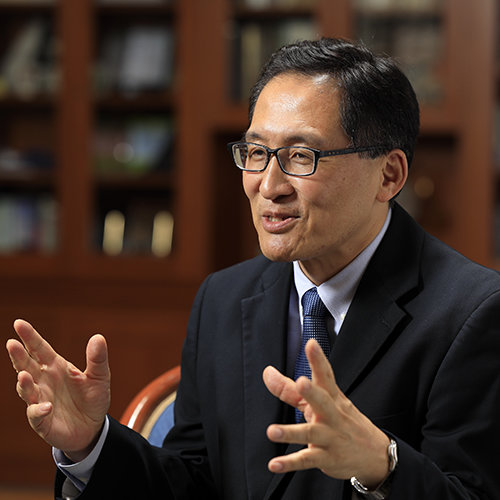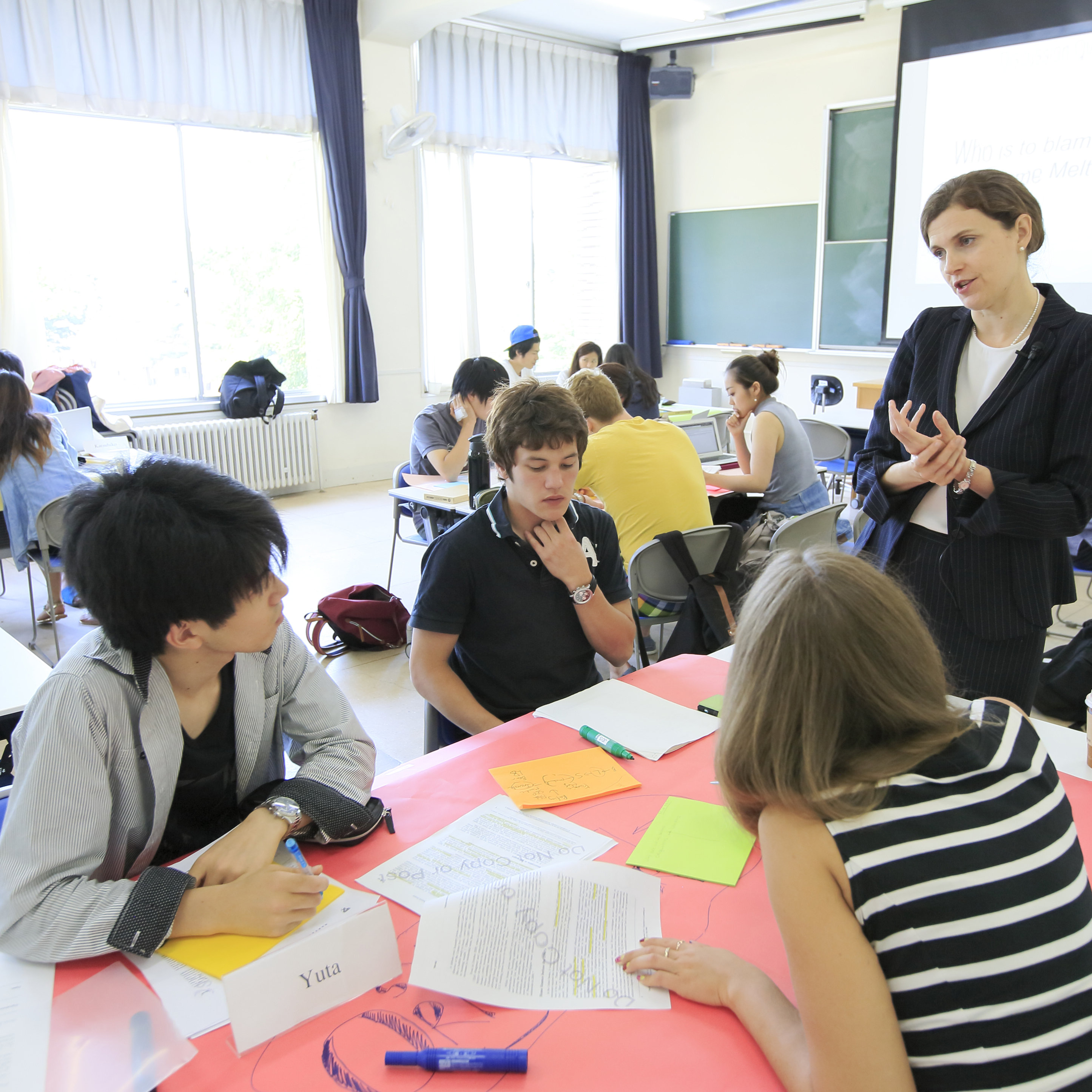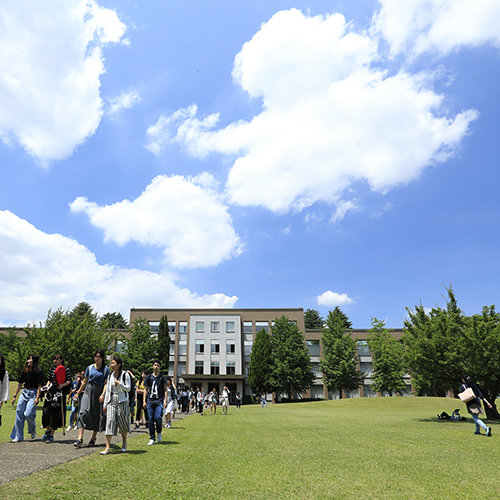NEWS
Message from International Christian University (ICU) , No2
Update: September 2, 2020
This E-Newsletter is mainly for teachers and counselors involved in secondary education, but is open to individuals who wish to subscribe to it.
Please fill in the form below and click on the "Subscribe to this E-Newsletter" button.
Subscribe to this E-Newsletter
Message from ICU , No.2(September 1, 2020)
The Online Classroom
- ICU's New Space Created with the Culture of Dialogue -
Yoshito Ishio, Dean of the College of Liberal Arts

For most ICU faculty members, the transition from conventional classroom instruction to online instruction was a difficult adjustment because this situation was their first experience with teaching in the online format. Liberal arts education at ICU has emphasized the importance of dialogue between instructors and students as well as between students. Many faculty members including me initially thought that effective dialogue was possible only through face-to-face interactions. Therefore, there was considerable anxiety among faculty members that online instruction would not produce learning outcomes on a par with that of the physical classroom.
What became apparent by the latter half of the spring term was that our faculty members were very resourceful in creatively providing meaningful interaction with students through the online format. In fact, many of them turned what initially seemed like disadvantages of the online experience into advantageous educational features.

We also found that discussion among students could take place effectively online. In the physical classroom, we typically divide students into groups of five people for discussion. Using Zoom, we divided students into small groups called "breakout sessions" in which members of each group were able to engage in discussion among themselves. This online discussion was quite effective. In fact, many faculty members found that students often stayed in the breakout sessions to continue the discussion even after the class period ended. The long hours at home may explain their enhanced desire to engage in discussion with classmates, but this example also shows that the online environment could potentially encourage more dialogue than the physical classroom environment.

Another interesting example of online instruction by our faculty members incorporated information from outside the classroom effectively. As instructors are not confined to the classroom in online courses, they can move to the places directly related to the content of the lecture with portable Wi-Fi. An archaeology professor live-streamed from an excavation site on the ICU campus where the Jomon Period pit dwellings and potshards were found. It was an exciting on-site lesson that riveted students who were watching the online lecture.
The reason why our online classes were more effective than we had originally imagined lies not just in our faculty's innovative efforts. ICU students also contributed greatly to the success of many courses. ICU has had a culture of dialogue between students and faculty members. One example is the widespread use of what we call "Comment Sheets." Students typically fill out these sheets at the end of each class period in order to provide feedback to their instructors about the session and ask questions. This tradition has nurtured a culture of incorporating students' voices to improve instruction. This culture worked to our advantage during the spring term of online teaching. Many students engaged in constructive efforts to improve instructors' teaching methods by offering various suggestions for improvement. Many students also expressed their heartfelt appreciation for faculty in providing education during a difficult period. This expression of appreciation also motivated faculty members to deliver impactful content. I believe this dialogue-rich culture at ICU provided a virtuous cycle in our online classrooms.
ICU's online classes are not stopping the 'Dialogue'
Short Videos
Profile of Dr. Yoshito Ishio
Dr. Ishio received his MA in sociology from Baylor University in 1991 and received his Ph.D. in sociology from the University of Minnesota in 1995. His area of specialty is political sociology. He conducts research on American patriotism. He served as the Director of the Service Learning Center, the Chair of the Sociology and Anthropology Department, and the Director of the Graduate School Public Policy and Social Research Program before becoming the Dean of the College of Liberal Arts in April 2020.
E-Mail Magazine Back Number
